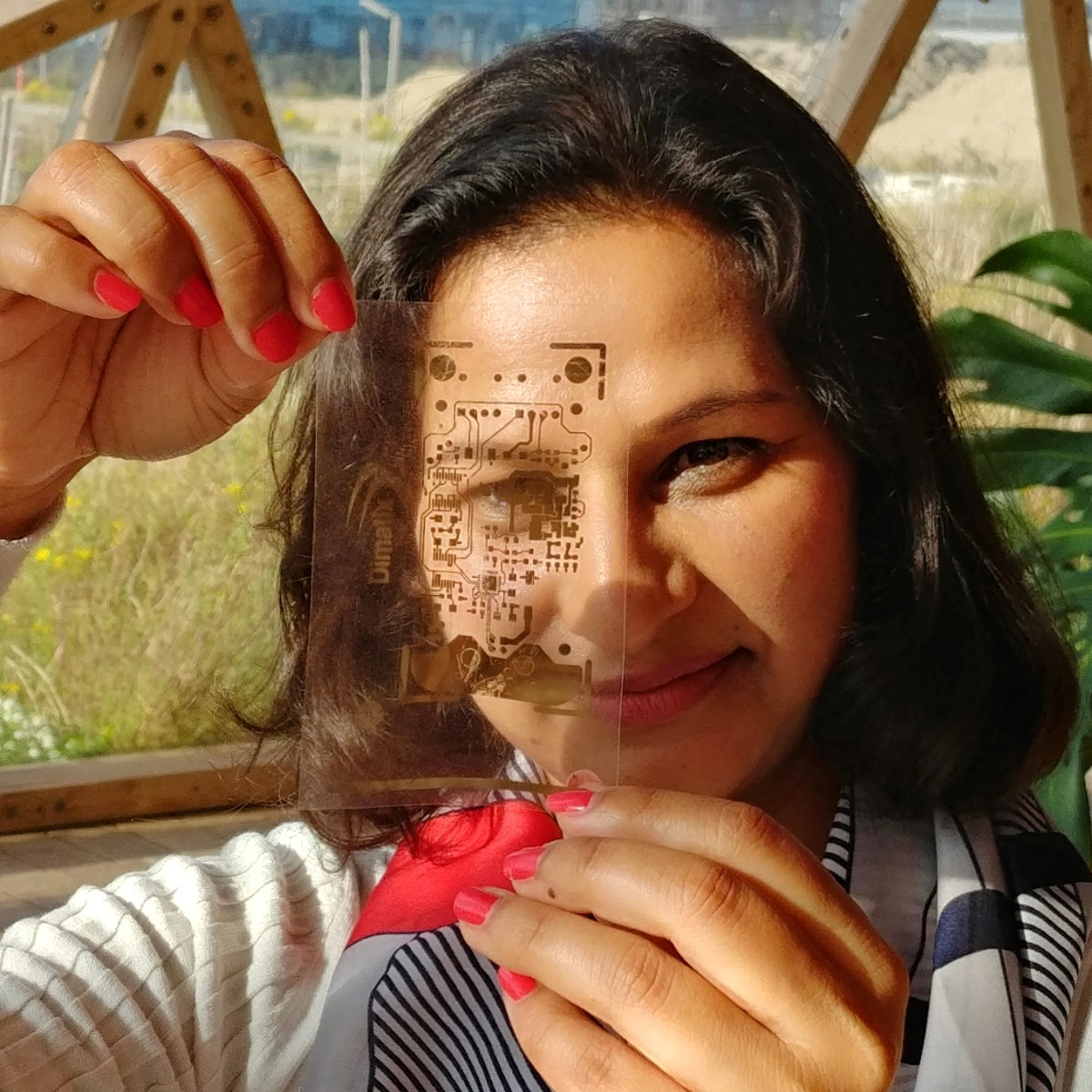New research project on sustainable electronics promises to reduce e-waste problem
Assistant Professor Shweta Agarwala from the Department of Electrical and Computer Engineering at Aarhus University will use materials science and printed electronics to deal with the ever-increasing problem of electronic waste.

The accumulation of electronic waste (e-waste) on the Earth is not just a growing problem but an environmental threat. E-Waste is now considered the fastest-growing waste stream in the world and has been called a veritable tsunami by the UN.
In 2019, a record 53.6 million tonnes of e-waste was generated worldwide, up 9.2 Mt in five years. Just 17.4 pct. of this was officially documented as formally collected and recycled. Assistant Professor Shweta Agarwala, an expert in printed electronics, wants to deal with this problem.
She has just received DKK 6 million from the Villum Foundation to start a research project aimed at creating novel electronically functional materials that are completely biologically degradable.
"We are rapidly developing solutions for sustainable societies with renewable energies, smart manufacturing, green aviation etc. But if the supporting electronics is not degradable, then the future isn’t sustainable. Coupled with ever-decreasing shell life of electronic devices we have a problem. Moreover, most electronics aren’t just non-degradable, they also release toxins harmful to the environment," she says.
Shweta Agarwala’s research lies at the interface of nanotechnology, electronics engineering and additive manufacturing. Via the technology of printed electronics (PE), she is using functional inks to print electronic circuits on various flexible substrates, such as textiles, paper, biomaterials or plastic.
“In this new project, I will manipulate the architecture of a polymer to create a novel, tunable, insulating and conducting material that is biodegradable. Although there has been some work done on biodegradable substrates, synthesis of biodegradable conductors and semiconductors is almost a virgin area. This is where I want to push the scientific boundaries to design a new material class with unique properties and dedicated functionalities,” she says and continues:
“I think it’s high time we start making solutions for replacing the classic materials such as silicon and germanium in electrical components with new biodegradable materials. This prestigious grant will give me the necessary tools to build the solution.”
Even though Assistant Professor Shweta Agarwala doesn’t expect the project to breed industry-ready technology, she does have a vision to take it far and beyond. The project will not only develop a new material class, but also translate its findings to fill the gap between science and engineering:
“In my opinion, it’s important to design and create solutions that allow for discovered materials to be made into devices and integrated into products for a coherent flow between discovery to product. 3D printing is of paramount importance here, since it enables such solutions to be easily integrated into industries at a later stage.”
The project goes under the name "Printed bio-inspired hydrogel substrate with adhesive and electrical conductivity for sustainable electronics", and starts on 1 April 2021.
Contact
Assistant Professor Shweta Agarwala
Department of Electrical and Computer Engineering
Mail: shweta@ece.au.dk
Tel.: +45 93521874
